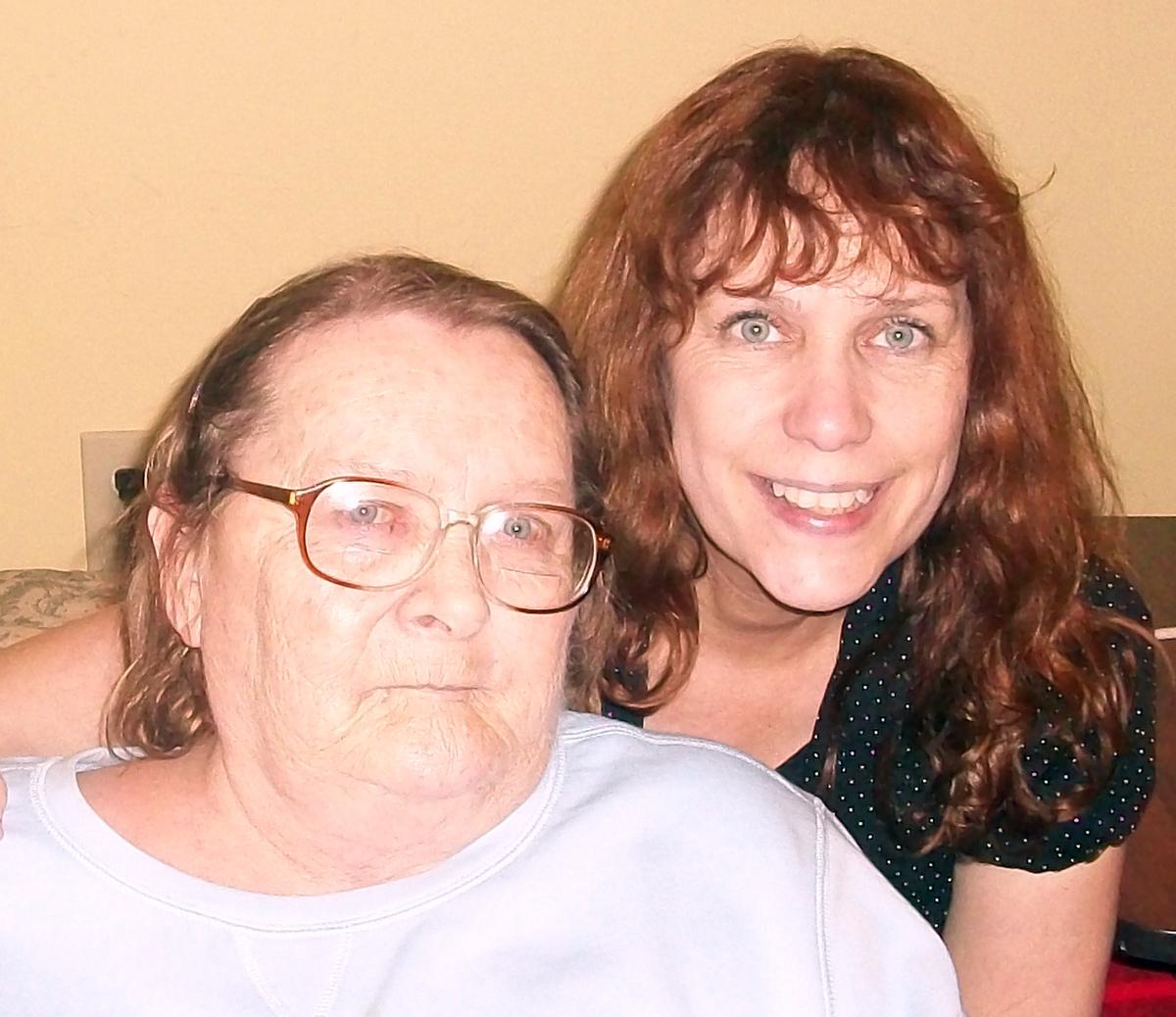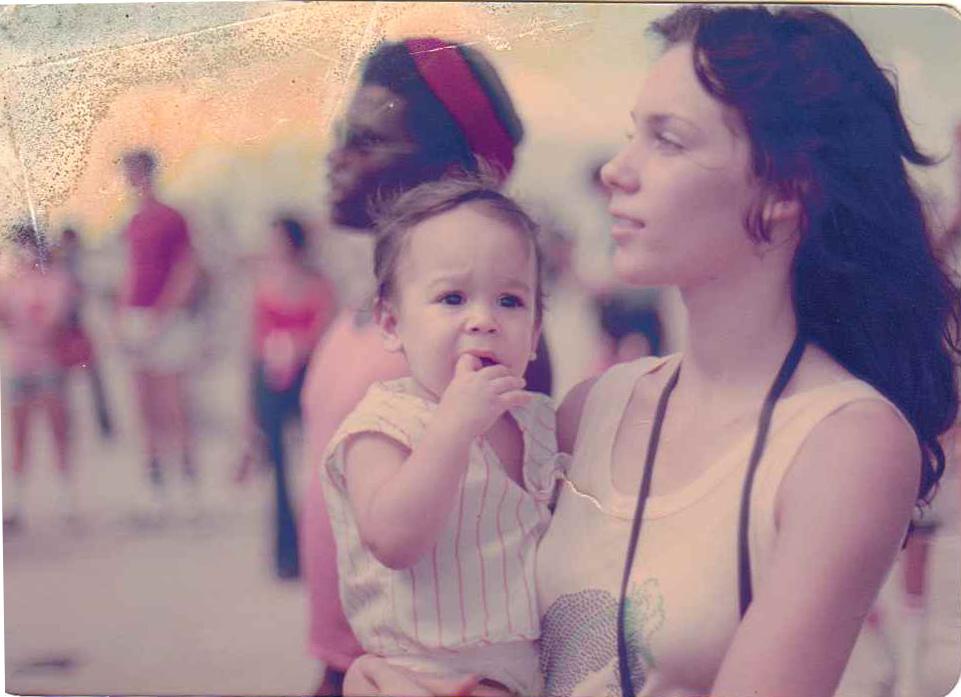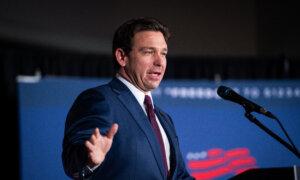Juda Myers says every person has worth, regardless of the circumstances of their birth.
The year was 1956, and the streets of St. Louis, bustling by day, had all but emptied for the night.
It was late, and the bright neon lights of the movie theater gave way to darkness as Ann Phillips walked home alone.
A movie, Ms. Phillips had thought, would be the perfect end to her night off from her work as a live-in nanny.
She had no idea how that decision would upend her life.
It was hours before she managed to pick herself up off the pavement. Beaten and left for dead, Ms. Phillips had laid there waiting for her eight shirtless attackers to come back and finish the job. When that didn’t happen, she went home, packed her things, and left for her parents’ house in Jackson, Mississippi.
Three months later, she realized she was pregnant.
“And then the fight begins,” Juda Myers told The Epoch Times, recounting her mother’s story.
Ms. Phillips’ parents pushed her to abort her baby—despite the procedure’s illegality—with the help of a doctor who’d promised to “take care of it.”
Unwilling to end her child’s life, Ms. Phillips instead chose adoption.
Ms. Myers, inspired by her mother’s selflessness, now advocates on behalf of other babies conceived in rape—a group often dismissed in the national abortion conversation.
Out of the Abyss
Ms. Myers was born on Feb. 14, 1957—Valentine’s Day—and was adopted at 3 months old.
She grew up knowing that she was adopted, but waited until she was in her mid-40s—after her adoptive mother had died—to look for answers about her birth parents.
The truth wasn’t easy to find. To conceal the circumstances of Ms. Myers’ conception, the adoption agency had lied and told her adoptive parents that her birth mother was dead.
“I guess they figured the infamous ‘rape baby’ wasn’t wanted by anybody,” she said.

When she tracked down the agency, the staff remained evasive. Finally, after some effort, she extracted the truth.
“I felt like a brick had hit my face,” she recalled.
Ms. Myers stumbled back to her car in a daze, the word “raped” still echoing in her mind. What a horrible way to enter the world, she thought. And as she sat there reeling in the driver’s seat, consumed by anguish and shock, her thoughts turned dark.
Doubts and insecurities flooded her mind, and she soon began to contemplate doing something that, as a Christian, she’d never even imagined considering.
“I’m sitting there, and I’m feeling demons pulsing through my fingers. And I’m feeling like I should commit suicide.”
But then she pictured Jesus sitting next to her in the passenger’s seat, and she realized that she couldn’t take her life—because it wasn’t hers to take.
“I belong to Christ,” Ms. Myers recalled saying aloud.
Instantly, the pulsations and voices stopped. She gathered herself and flew home to her family in Texas.
But the hurt didn’t evaporate overnight. The next day, those feelings resurfaced, and she began to feel as though she were falling into a deep abyss.
Then a friend—who had no knowledge of what she was going through—reminded her that God knew her “before you were ever conceived.” Suddenly, a bright light broke through the darkness in her mind, and she envisioned a hand reaching down to yank her from the abyss.
“I lift my head up—and this light is blinding me—and I say, ‘I believe it,’” she said. “And I have been secure in who I am ever since.”
Under Pressure
Ms. Myers eventually located her mother at a nursing home. There, kneeling by her mother’s wheelchair, she learned the horrific details of the assault that sparked her life.
As she listened, she wept. Her mother, however, assured her that she’d learned to forgive, and that their reunion—which she’d always prayed for—just served as proof that “God is faithful.”

Through those efforts, she discovered that her mother wasn’t an anomaly among rape survivors. In fact, she said most women she spoke with wanted to keep their babies but often felt pressured to abort.
This holds true for most women seeking abortions, regardless of how they conceived, research shows.
Emily Erin Davis, vice president of communications for Susan B. Anthony Pro-Life America, told The Epoch Times that she had also experienced that pressure with her two unplanned pregnancies.
The first pregnancy, Ms. Davis said, occurred at a difficult time while she was living in a motel.
Those around her urged her not to “go through with” her pregnancy, telling her it wouldn’t be smart. Nonetheless, she chose an open adoption, and that baby is now an 18-year-old man.
“It’s one of the most beautiful things and most selfless things I’ve ever done,” she said.
With her second pregnancy, Ms. Davis said she was pressured to abort by her baby’s father. That time, however, she chose to keep her daughter, vowing to “figure it out.”
While those situations were difficult, she noted that when rape is involved, there’s an added stigma that often leads to the child’s dehumanization.
“They’re always termed as ‘the rapist’s child,’ as if, from the jump, that devalues them as a human being. So, the ultimate question is, when does human life start? And once we answer that question, why is that child devalued and forgotten?”
‘Upside-Down Justice’
Even in states with strict abortion laws, women impregnated through rape are often still able to procure an abortion due to legal carve-outs.
Such exceptions are often grounded in the assumption that women who have been raped will experience additional trauma from carrying a baby to term.
But Ms. Myers noted that the same can be said of rape survivors who choose abortion.
Through Choices4Life, she connected with 17 rape survivors who had aborted their babies. Fourteen of those women were suicidal when she met them, including one who had already attempted suicide.
The other three women Ms. Myers met had only recently terminated their pregnancies. The one-year anniversary, though, was when most of the other women had told her they’d “lost it” thinking about the milestones their babies would have been approaching.
It was unfair, Ms. Myers said, that those mothers and their babies ended up paying for their attackers’ crimes.
“If anybody deserves to die after a rape, would it not be the rapist?” she asked. Instead, the rapist often goes free “and the mother and child don’t. It’s upside-down justice.”

Many rape victims are minors who fell prey to habitual sexual abuse. For their abusers, abortion can present an escape from legal consequences.
“We know for a fact that sex traffickers and abusers use abortion to cover up their crimes. I mean, that happens across this country,” Ms. Davis said, citing a recent investigative report from Project Veritas.
The legal age of consent in Missouri is 17, and state law prohibits anyone from assisting a minor to obtain an abortion in another state without parental consent.
The footage prompted Missouri’s attorney general to sue. Planned Parenthood has since denied providing any form of transportation to patients.
But Ms. Davis said that legal loopholes often allow abusers to take advantage. She pointed to a ballot initiative that aims to create a right to abortion in Florida’s state constitution.
The amendment specifies that it wouldn’t change lawmakers’ ability to require parental notification for minors obtaining abortions. But state law currently requires parental consent, not just notification, Ms. Davis said.
“That means that the abortion industry is working to get the minors in there without the parents knowing, and then maybe notify them after the fact. And some don’t even do that.”
A Life Worth Saving
The task of closing such loopholes usually falls to the nation’s lawmakers. But Students for Life Action President Kristan Hawkins noted that many politicians are conflicted on the issue of abortion—particularly when rape is involved.

“In our rush to stand with women who have survived the most horrible thing that any of us can imagine, we prescribe this act of brutality and violence upon another member of our species, another human being. Because we’ve been conditioned not to see the child in the womb as a valuable member of our species who has equal rights to life as we do,” Ms. Hawkins said.
In all her travels to college campuses around the country, Ms. Hawkins said she had never met anyone who supported the idea of killing someone conceived through rape that had already been born. But when it comes to those still inside the womb, the idea of prematurely ending their lives is often discussed with nonchalance and as a moral imperative for the mother’s sake.
The difference, she said, is that people don’t have to look the unborn in the eyes as they decide their fate.
“It’s automatically the assumption of Republicans and Democrats that, of course, we will prescribe death to a child conceived in rape, without even a moment’s thought or consideration about these children and who they are as individuals—as children created in the image of a Creator.”
Ms. Hawkins said she considered that line of thinking to be intellectually lazy and demeaning to both the pregnant mother and her child.
Ms. Myers agreed, holding that the message rape survivors receive from such reasoning is that their children are “worthless” and deserve to die.
“None of us comes into this world choosing how we got here,” she said. “If they want to think about women and their children, I am my mother’s child. And my life deserves to be saved, just like anybody else.”
Original News Source Link – Epoch Times
Running For Office? Conservative Campaign Consulting – Election Day Strategies!


